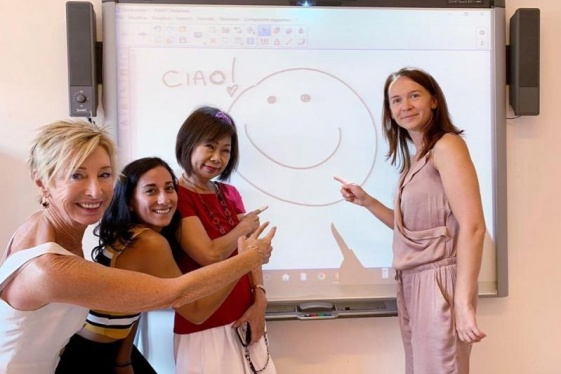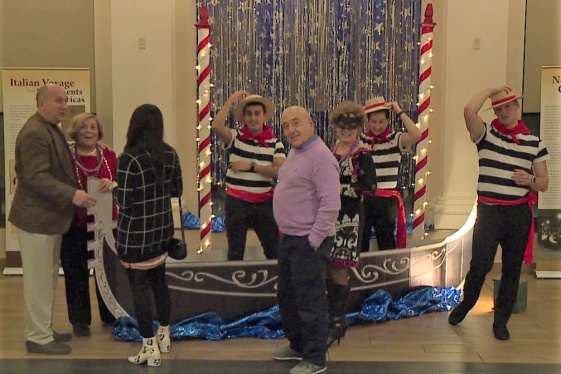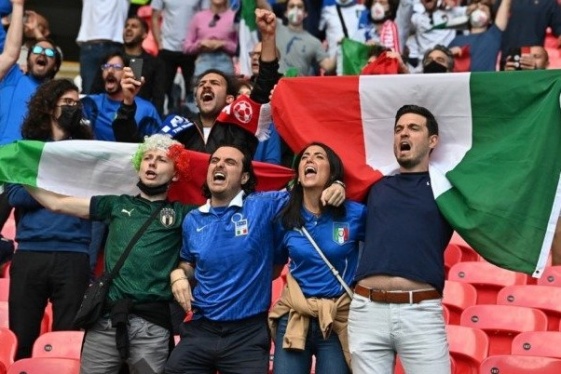

We talked about the Italian alphabet before, how it has only 21 letters and impossible vowels, and we started to look at some of the spelling rules. However, we didn’t look at one of the most feared feature, especially for its pronunciation: the doubles!
Yes, Italian does have only 21 letters, but almost every consonant can be doubled in a word, which might not seem like a big deal, but by the time you get to the end of the article, you will realize it is. Doubles aren’t just written or used because a word is spelled that way, but they are stressed. One “n” stressed when speaking instead of two “n”s would give a completely different meaning to the word. This is the case of “anni,” one of the most mispronounced words by Italian learners. When saying doubles, you really have to hold the doubled consonant longer, in actuality twice as long as you normally would. Imagine saying the letters separately first, like an-ni. Then, add them together; you should have the single “n” sound as long as when you pronounce the two “n” sounds separately. In fact, “anni” means “years” like in “io ho 25 anni” (I am 25 years old), but if don’t really hold on to that “n” while saying it, you’ll end up saying you have 25 anuses instead, which could really change the conversation.
The list is really infinite! “Sete” (thirst) becomes “sette” (seven); “tori” (bulls) becomes “torri” (towers); “caro” (dear) becomes “carro” (chariot); “note” (notes) becomes “notte” (night); “sera” (evening) becomes “serra” (greenhouse); “camino” (fireplace) becomes “cammino” (I walk); “pala” (shovel) becomes “palla” (a ball); “peli” (hairs) becomes “pelli” (leather); “polo” (pole) becomes “pollo” (chicken); “dita” (fingers) becomes “ditta” (company), “casa” (house) becomes a “cassa” (box); “pena” (pain) becomes a “penna” (pen); “nono” (ninth) becomes “nonno” (grampa); “regia” (film directing) becomes “reggia” (mansion); “copia” (copy) becomes “coppia” (couple) and so on.
And while mispronouncing some of them won’t get you in big trouble, like “rosa” (pink) and “rossa” (red), which are not so different, or like “capello” (hair) and “cappello” (hat), which at least are both on your head; others, like “anno,” really have no way out. In fact, a “poro” (pore) is not “porro” (leek), “seta” (silk) is not a “setta” (sect) and a “fata” (fairy) is not “fatta” (a person high on drugs). So, you see that telling someone that your t-shirt is “rosa” instead of “rossa” is no big deal, while telling someone your friend is a “fata” (in a metaphorical sense) and “fatta” will have complete opposite implications.
This is to say that even though Italian generally has a pretty easy pronunciation, especially compare to English, attention to detail is the key to your language success. Grab you favorite Italian speaker, read through the examples, and see if you can hear the difference.
You may be interested
-
Italian world language teacher 2015-2016
FRAMINGHAM PUBLIC SCHOOLS - JOB DESCRIPTION TITLE: World Language Teacher - Italian...
-
'Italy Stay Strong': What The Coronavirus Eme...
On the northern coast of Sicily, looking out toward the magnificent Aeolian Islands, Milaz...
-
‘Carnivale’ doubles as event to persuade YSU...
Lent begins next Wednesday but the Italian community of Youngstown celebrated their own Ma...
-
‘Il Canto degli Italiani’: What the Italian n...
The Italian football team and its fans are known for belting out rousing renditions of the...
-
‘In Other Words’ review: Jhumpa Lahiri’s love...
By Howard Norman Jhumpa Lahiri lived with her family in Rome in 2012. Though she...
-
‘Let’s Choose Three Words’: the Project dedic...
‘Let’s Choose Three Words’ is a new educational project promoted by the Ministry of Foreig...
-
‘Living in Rome’ talk accompanies Italian din...
An Italian Dinner and Talk on "Living in Rome: Duties, Distractions and Delights" will be...
-
‘Sons’ save Primavera program
A community program providing supplemental education in a foreign language to community ch...










